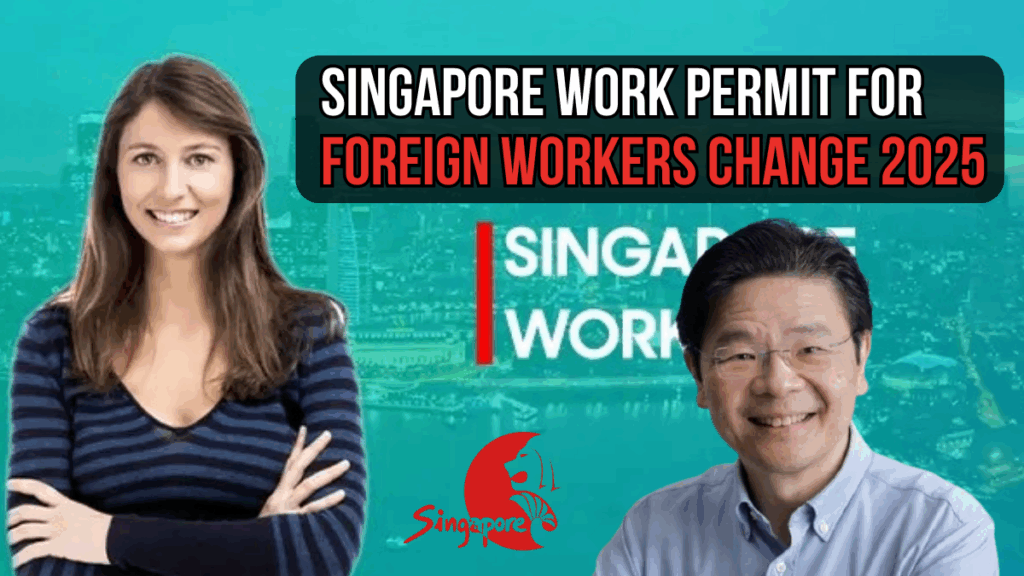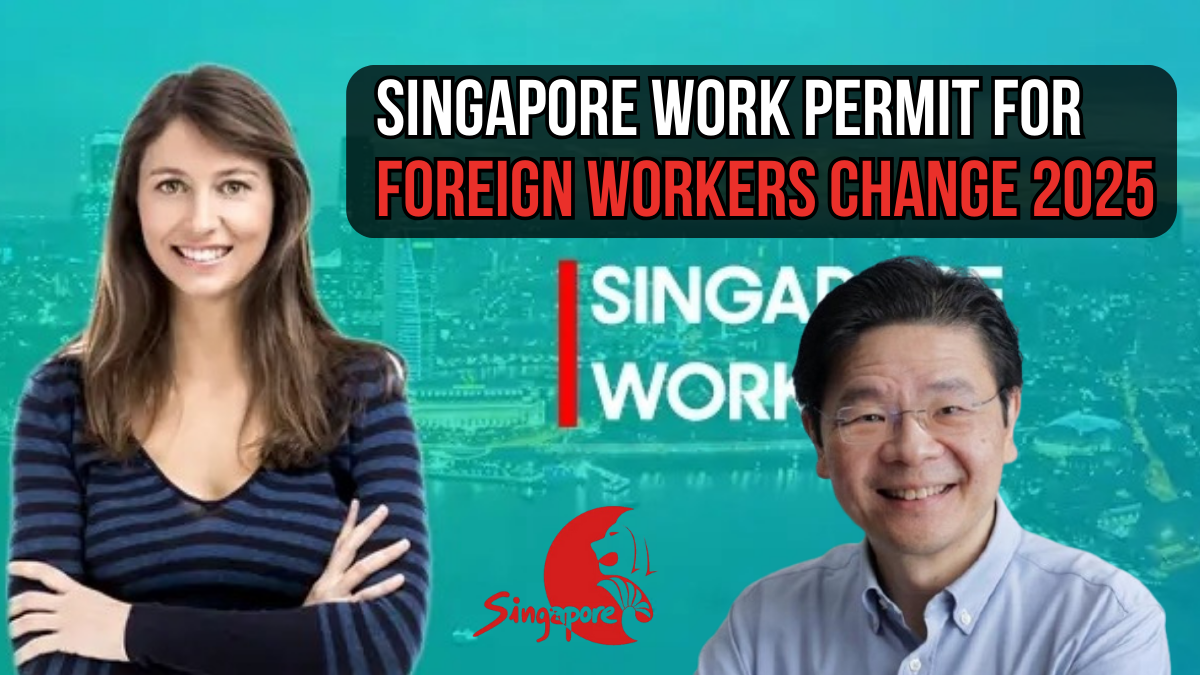Singapore will introduce significant changes to its work permit system in 2025, marking a major shift in the country’s approach to managing foreign manpower. These updates are part of the government’s long-term strategy to promote fair hiring practices, attract skilled foreign professionals, and strengthen opportunities for local talent.

Both employers and foreign workers must be aware of these changes to ensure compliance and to take advantage of new opportunities in the Singapore job market.
Why Singapore Work Permit Has Changed for 2025?
The Ministry of Manpower (MOM) has announced several major adjustments that will affect both the eligibility of foreign workers and the responsibilities of employers.
1. Increased Salary Thresholds for Certain Industries
The minimum qualifying salary for foreign work permit holders in construction, marine, and manufacturing will be raised.
Purpose of this change:
- Attract higher-skilled foreign workers
- Improve productivity in traditionally labor-intensive sectors
- Reduce dependence on low-wage labor
This means that employers seeking to hire foreign workers in these sectors must be prepared to offer higher base salaries in line with the new requirements.
2. New Age and Qualification Criteria
From 2025, new work permit applicants must:
- Be below the age of 50
- Possess relevant educational qualifications (such as diplomas, trade certifications, or technical degrees)
- Provide verifiable proof of work experience or technical skills related to the job
These requirements aim to ensure that foreign workers contribute meaningfully to Singapore’s economy and are well-suited for the country’s evolving industries.
3. Stricter Employer Responsibilities
Employers will face tighter obligations when applying for foreign worker permits. They must:
- Demonstrate genuine efforts to hire Singaporeans first
- Provide documented evidence of local recruitment activities, such as job advertisements and career fairs
- Show proof of training initiatives for local staff
Failure to meet these requirements could result in rejections or delays in obtaining work permits for foreign hires.
4. Streamlined and Secure Application Process
The work permit application process will now be fully digital via the MOM portal.
Benefits of the new system:
- Faster processing times
- Reduced paperwork
- Improved transparency
However, applications will require complete and accurate documentation. Any missing or incorrect details may lead to delays or outright rejection.
Quick Summary Table
Category |
Details |
|---|---|
Policy Effective Date |
2025 |
Key Changes |
Higher salary thresholds, new age and qualification criteria, stricter employer obligations, streamlined application process |
Industries Most Affected |
Construction, marine, manufacturing |
Age Limit for Applicants |
Below 50 years old |
Application Method |
Fully online via Ministry of Manpower (MOM) portal |
Official Site |
What These Changes Mean for Employers
Employers must reassess recruitment and HR strategies to adapt to the new framework:
- Revise job descriptions to focus on specialized skills
- Maintain detailed records of local hiring efforts
- Allocate budgets for competitive salaries in affected industries
- Invest in staff training programs to enhance local capabilities
By aligning with the updated rules, companies can avoid disruptions in workforce planning and ensure continued access to foreign talent where needed.
What These Changes Mean for Foreign Workers
Foreign workers who wish to work in Singapore in 2025 must:
- Upgrade qualifications through certifications and skills training
- Prepare official proof of experience and education for submission
- Ensure age eligibility before applying
- Target industries that match their skills and offer competitive wages
Those with specialized or high-demand skills will benefit most from the new framework, as employers will prioritize workers who can justify the higher salary thresholds.
Preparing for the New Work Permit Landscape
The 2025 changes are designed to:
- Build a future-ready workforce
- Balance local talent development with foreign expertise
- Promote fair and transparent hiring practices
Both businesses and job seekers should begin preparations now:
- Employers should audit HR policies and ensure compliance
- Foreign workers should invest in skill upgrades and documentation readiness
- Both parties should stay updated through official MOM announcements
Frequently Asked Questions (FAQs)
Q1: Who will be most affected by the 2025 changes?
A: Foreign workers in construction, marine, and manufacturing, as well as employers in these sectors, will experience the biggest impact.
Q2: Is there a new age limit for applicants?
A: Yes. Applicants must be under 50 years old at the time of application.
Q3: What proof of qualifications is required?
A: Recognized diplomas, trade certifications, technical qualifications, and verifiable work experience documents.
Q4: How has the application process changed?
A: The process is now fully digital, faster, and more secure, but requires complete and accurate documentation.
Q5: Will salaries need to be higher in all sectors?
A: No. The increase primarily targets construction, marine, and manufacturing, but other sectors may see salary adjustments in the future.
Conclusion
The 2025 Singapore work permit changes will reshape how companies hire and how foreign professionals enter the country’s workforce.
With higher salary thresholds, stricter eligibility rules, and a more accountable employer process, the focus will shift toward quality over quantity in foreign hiring. Employers who adapt early and workers who invest in relevant skills will be best positioned to thrive under the new regulations.
For complete details and updates, visit the official Ministry of Manpower website.
For More Information Click HERE




